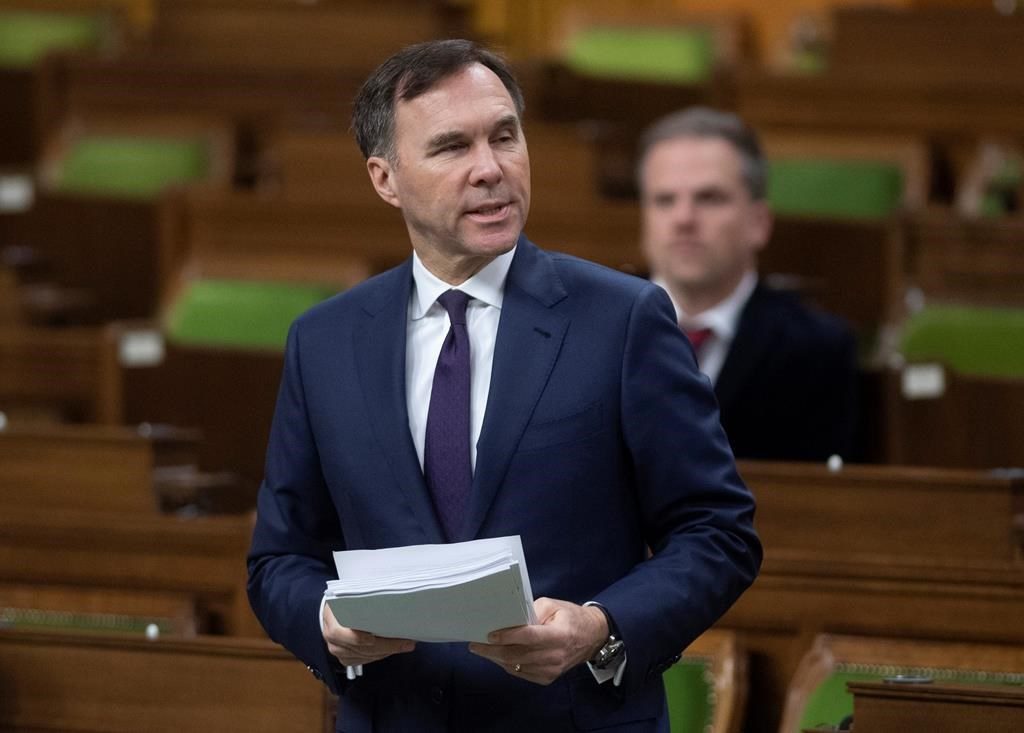Senate passes emergency federal aid package of $107 billion

Posted March 25, 2020 11:41 am.
Last Updated March 25, 2020 10:32 pm.
OTTAWA (NEWS 1130) – The portion of benefits to help Canadians and small businesses cope with the COVID-19 pandemic is almost double what it was expected to be, the federal finance minister said Wednesday.
The federal emergency bill to inject billions of dollars of aid into the Canadian economy for workers, families and businesses was passed the same day in the Senate.
The total aid package was initially proposed at $82 billion, but increased to $107 billion, with direct support to Canadians and small businesses nearly doubling to $52 billion.
“Extraordinary challenges necessitate extraordinary measures, and that is indeed how we’ve gotten to where we are with the benefits that we are putting forward to Canadians, the benefits we are putting forward to support businesses, and the benefits we are putting forward to support our economy,” Federal Finance Minister Bill Morneau said.
The federal government decided the best way to support Canadians who are out of work, sick, supporting loved ones or in isolation due to the novel coronavirus is to have one emergency benefit – the Canadian Emergency Response Benefit.
Help is on the way. This morning we passed the COVID-19 Emergency Response Act, to ensure that Canadians get the support they need when they need it. Thank you @BlocQuebecois, @CPC_HQ, @NDP , @CanadianGreens & @SenateCA for your cooperation on this important relief. pic.twitter.com/EXVQciAtXG
— Bill Morneau (@Bill_Morneau) March 25, 2020
“And the idea is that we are going to deliver for every Canadian who finds themselves in a situation, where they’ve earned revenue in the past 12 months of $5,000 or more, and they don’t have any income as a result of COVID-19, they can get this benefit,” Morneau said.
The benefit is $2,000 a month for four months.
“So what we are doing is ensuring we enable people to bridge through this very difficult time,” he added.
Morneau said the benefit is designed as a wage subsidy, delivered directly to people.
“We think that is critically important.”
The government is targeting week of April 6 to make the benefit available.
The impact on the Canadian economy is significant, Morneau added.
“It means we are entirely funding this through the federal government.”
Economic supports have changed over the past week, he added.
Rather than the expectation of direct support to Canadians and small businesses of $27 billion, the federal government is now expecting that total to be budgeted at $52 billion.
“On top of that, there’s $55 billion in tax deferrals that we’ve said are there because neither individuals nor corporations will be forced to pay their income tax before Aug. 31,” Morneau said.
“So a total package of $107 billion into our economy.”
Morneau said the federal government is also working with Canadian banks to make credit available to businesses, but that benefit program is not ready yet.
“The banking system is a source of strength for Canada, I believe the strongest banking system in the world,” he added.
“But we don’t have anything final to report in terms of exactly the parameters of how we are going to move forward.”
As of Wednesday, Canada had recorded more than 3,300 confirmed and presumptive coronavirus cases and 35 related deaths.
B.C. has seen the most deaths, with 14, the majority of which are linked to the Lynn Valley Care Centre in North Vancouver.
Ontario has seen 13 deaths, Quebec, six, and Alberta, two.








